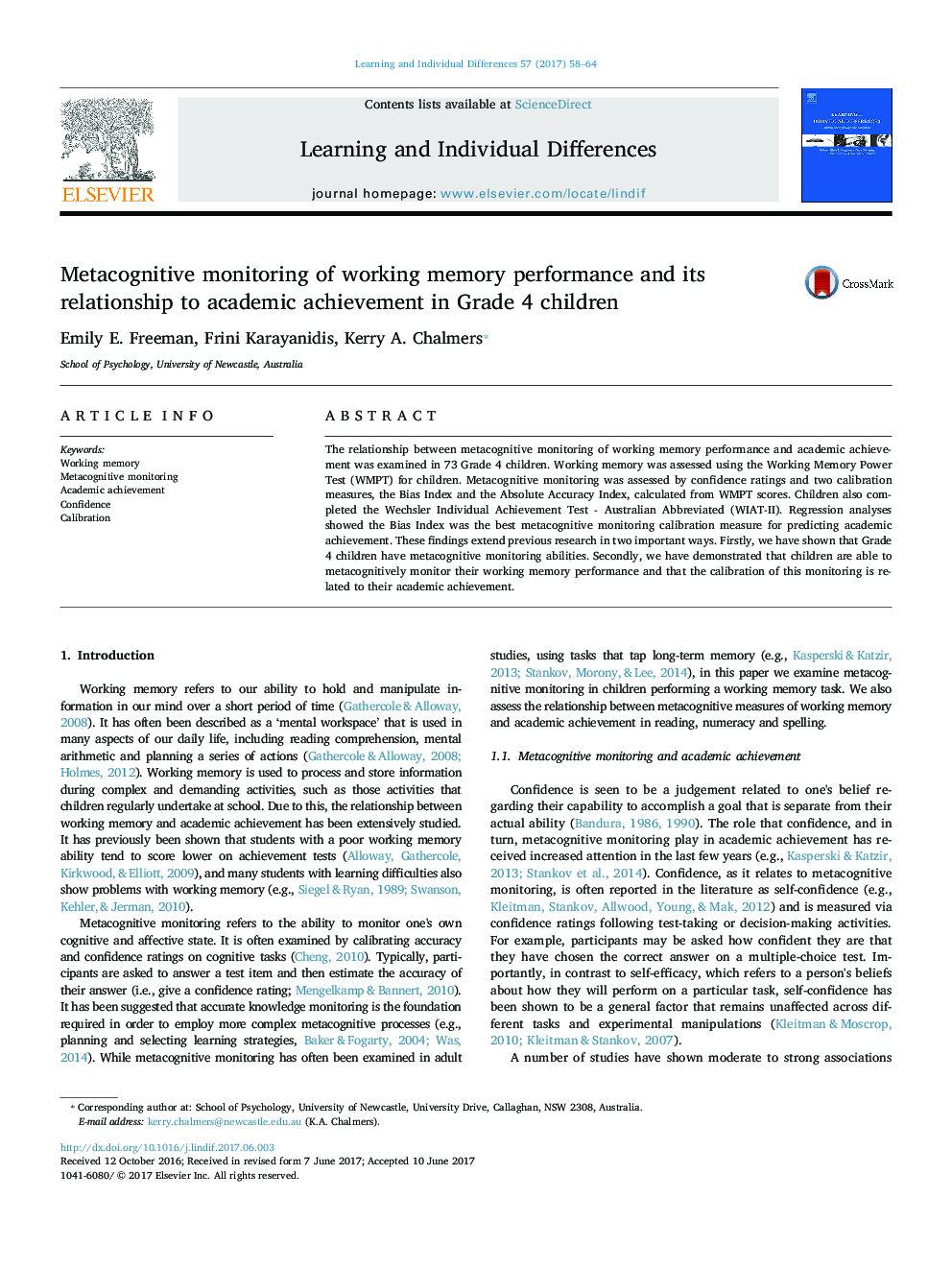| Article ID | Journal | Published Year | Pages | File Type |
|---|---|---|---|---|
| 4940001 | Learning and Individual Differences | 2017 | 7 Pages |
Abstract
The relationship between metacognitive monitoring of working memory performance and academic achievement was examined in 73 Grade 4 children. Working memory was assessed using the Working Memory Power Test (WMPT) for children. Metacognitive monitoring was assessed by confidence ratings and two calibration measures, the Bias Index and the Absolute Accuracy Index, calculated from WMPT scores. Children also completed the Wechsler Individual Achievement Test - Australian Abbreviated (WIAT-II). Regression analyses showed the Bias Index was the best metacognitive monitoring calibration measure for predicting academic achievement. These findings extend previous research in two important ways. Firstly, we have shown that Grade 4 children have metacognitive monitoring abilities. Secondly, we have demonstrated that children are able to metacognitively monitor their working memory performance and that the calibration of this monitoring is related to their academic achievement.
Related Topics
Social Sciences and Humanities
Psychology
Developmental and Educational Psychology
Authors
Emily E. Freeman, Frini Karayanidis, Kerry A. Chalmers,
